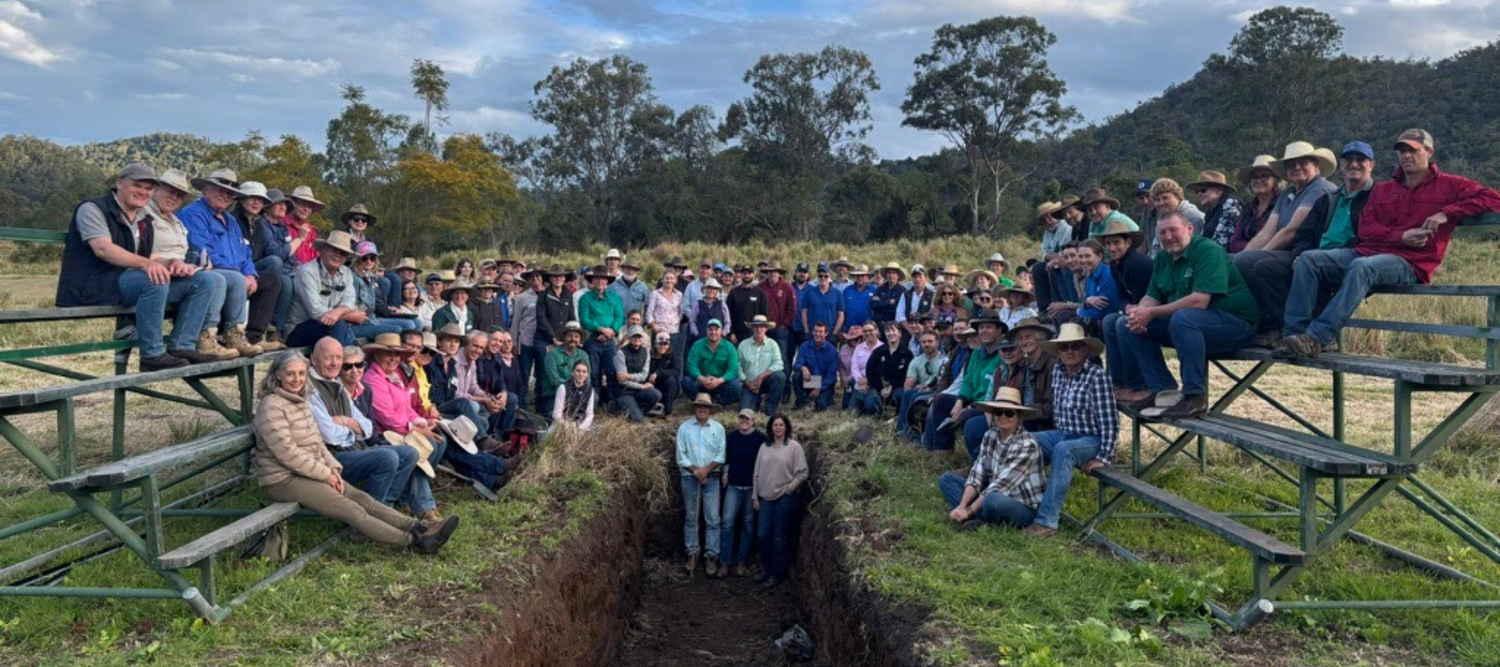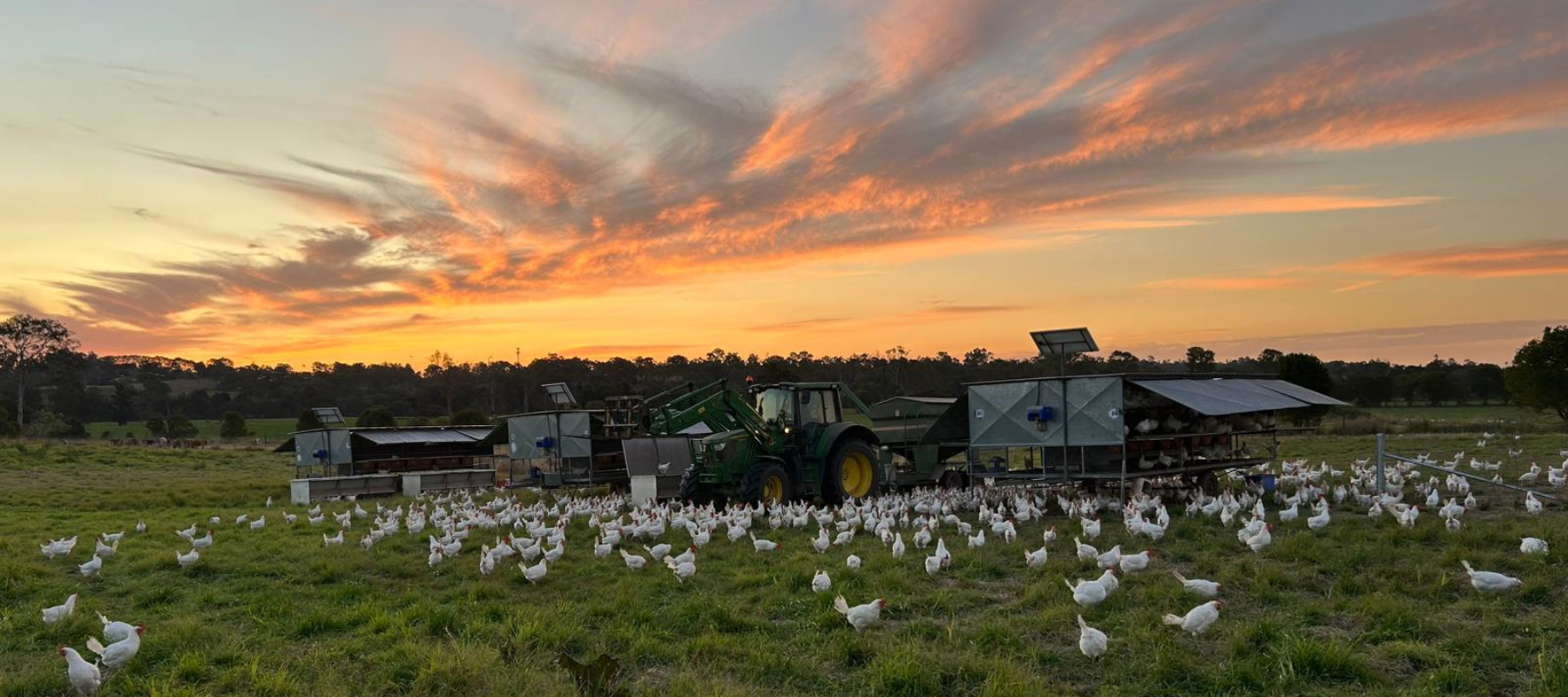Recently, the team attended an event hosted by Nicole Masters, founder of Integrity Soils. Nicole is a passionate advocate for regenerative food systems and farming methods. Her work and experience in the sector have provided her with evidence that many answers lie in the soil. We have been implementing some of Nicole’s principles at Forage Farms, and it was fabulous to hear more from her.
Here's what we learned.
Embrace soil health principles
Nicole provides a flexible framework for regenerative agriculture, echoing the way we like to trial multi-species pastures. She promotes aligning with nature’s rhythms. This means having a collaborative mindset whereby you shift from a controlling nature (‘ego’) to partnering with it (‘eco’) for better outcomes. She also advocates for optimum photosynthesis to capture more sunlight to energise plants and fuel underground life. Keeping soil covered year-round to prevent erosion and build moisture-retaining organic life is another key component of her framework. She is a big believer in optimising and reducing inputs to enhance natural processes. This cuts synthetic additives and boosts efficiency. Optimising disturbance by using grazing and other tools that have positive impacts, rather than harmful ones, and having a diversity of plants and animals are also integral to Nicole’s model. Varied species enhance nutrient cycling and resilience and guide experimentation, turning challenges into growth opportunities.
These principles need to be applied in the context of your environment. Adapting to your farm’s unique factors will be key to your success. In our case, we must adjust and respond to south-east Queensland’s changeable weather swings.
The 5 M's: Diagnosing Limiting Factors | A check list
This checklist helps troubleshoot soil issues by identifying roadblocks to progress. Run through it to spot deficiencies and then target solutions. We are already using this at Forage Farms pinpoint grazing-related compaction.
Your Mindset: Do you have fixed habits that are blocking change? Embrace uncertainty, as Voltaire said, "Uncertainty is an uncomfortable position. But certainty is an absurd one."
Your management practises: Is overgrazing causing erosion? Refine rotations for natural alignment.
Mineral imbalances or deficiencies: For example, low calcium may be weakening plants. Test and amend ratios like Ca:Mg.
Microbial imbalances or deficiencies: Are the bugs out of sync and slowing nutrients? Boost with teas if fungi or bacteria lag.
A lack of organic matter: Are you experiencing poor water holding capacity? Build via covers or mulches for a stronger soil engine.
Weeds as soil doctors
Weeds aren't villains. They're indicators, fixing soil woes like bare ground, mineral gaps, microbial imbalances, or toxins. We have long been proponents of the power of weeds in indicating what is happening in a landscape and as a result of our management. We even write a monthly newsletter with a section discussing plants - check it out at our newsletter Reading Landscapes.
The bustling life beneath our feet
Soil teems with life. Bacteria, fungi, protozoa, nematodes, cycling nutrients, fixing nitrogen, and storing water via macro-pores. Our practices can disrupt this "underground metropolis," creating cycles such as high nitrogen losses in compacted soils. Supporting biodiversity (including insects and birds) with carbon feeds and gentler methods mimics natural ecosystems, aligning with our livestock integration.
Tiny Experiments: Observe and adapt
Monitoring drives improvement through simple tools like checking for earthworms, infiltration, and Brix. Create tiny experiments. Trial a small plot with compost and observe the results. Then you can adapt. This mirrors our grazing tweaks at Forage Farms, building a repeatable process for resilience without overload.
Stay curious
Curiosity fuels growth. Question everything. Why is that weed there? What does this test mean? Curiosity will uncover deeper insights. It fosters lifelong learning, turning challenges into discoveries. Seek mentors, celebrate wins, and stay adaptive to Australia's conditions.
Continuous learning is a core value at Forage Farms. We are already implementing some of these learnings including soil monitoring to check infiltration, earthworms and Brix to refine our management. To boost our microbial health, we are using compost, and seed dressings for better nutrient cycling. To increase our fungal:bacterial ratio the team has been applying woodchip mulches and humic acids, the aim being to improve soil structure and carbon storage.
In building the landscape, we are looking after our animals and producing food that's not only tasty but as wholesome and nutritious as it can be.



